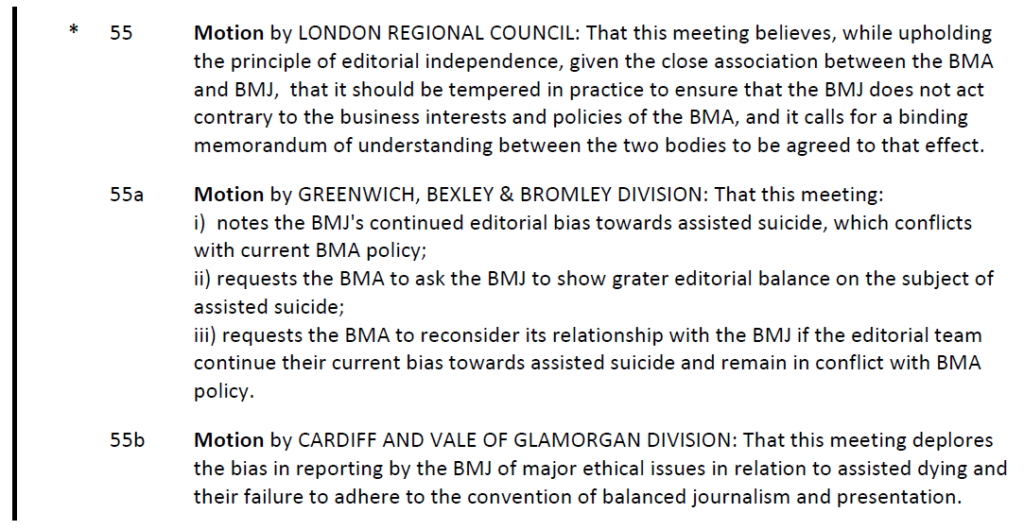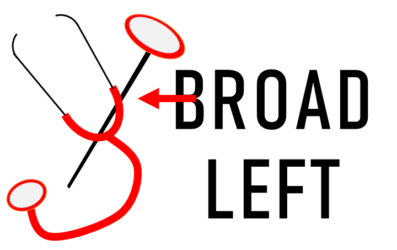Author: Grace Allport
This year the BMA Medical Students Conference was hosted on the 12th and 13th of April, and an enormous number of progressive policies were passed. Organisation among Broad Left students helped us to win support for our position on several issues and ensured important motions were discussed.
Student Welfare and Finance
Conference committed to several new policies aimed at improving conditions for medical students, such as lobbying medical schools to reduce travel time to help ease time pressure, promoting communal spaces on regional placements, allocating time for physical activity and establishing mental health services for medical students. These motions are important to continuing the vital work the BMA does in supporting medical students and advocating for conditions which allow them to study medicine without compromising their mental and physical health.
A motion about performance enhancing drugs was opposed by the Broad Left. The motion called for BMA investigation into the use of illegal recreational and performance enhancing drugs, as well as the implementation of drug testing systems at medical schools. The proposal would have discriminated against students who took some drugs for medical reasons by forcing them to disclose their condition and treatments to the medical school and any agencies involved in the testing. We do not believe that the BMA should be advocating testing and punishing students in this way. After a short debate, the motion fell.
Conference also committed to lobby for maintenance loan
access for students who chose to intercalate with a Master’s course rather than
a Bachelors. This policy aims to increase the accessibility of intercalated Master’s
degrees, especially to students from less economically privileged backgrounds. Kirush
Naguleswaran, who spoke in favour of the policy, said, “Intercalation is a
valuable part of a medical degree. Studying a Master’s degree equips you with
additional skills and knowledge that is not necessarily covered in a Bachelors.
Lack of financial support denies deserving candidates the chance to study
subjects at a Master’s level.” She argued that the lack of financial access
whilst a student lasted beyond university, highlighting the points awarded for
Master’s degrees at specialty application.
Education
The UKMLA remains highly controversial and the Broad Left
opposes its implementation in 2023. A proposal to recognise that it is too late
oppose the UKMLA’s introduction was so unpopular that the conference voted, by
an overwhelming majority, to have it removed from the agenda. Instead, the
conference agreed to maintain its position of opposition and engagement to the UKMLA
and restated its support for the red lines proposed by the Medical Students
Committee.
Further policies were agreed by conference, including
opposing the use of UKMLA scores in the application process for foundation
training, seeking to prevent additional burdens on finals students in 2022 when
the assessment will be trialled and seeking assurances that students could
abstain from the trial without punishment. These are crucial to the role the
BMA has of advocating for students and ensuring that their welfare is not
compromised.
Equality and Access to Medicine
Unanimously, conference voted to support policies to address
the Black, Asian and Minority Ethnic (BAME) attainment gap. The evidence that
the gap is not due to ability, but systemic racism, has already been heard and
accepted by the BMA. Majd Albakry said, “Although this matter has been
addressed previously, we need a more action-specific plan as outlined by motion
52 that incites organisational and social change.” These measures included creation
of an annual conference to tackle the issue, school-specific plans of action,
and positive action to increase the number of BAME staff working in medical
schools. The Broad Left supports these actions as part of our fight to ensure
that all students receive fair education and assessment, and to end disadvantage
on the grounds of race.
Conference also voted to establish liberation networks
within the BMA. These networks aim to provide representation for members of
minority groups. Each branch of practice would elect officers who identify as
women, LGBTQ+, BAME or as living with a disability, who would then meet to
discuss policy and representation. The motion was proposed by the Deputy Chair
for Welfare of Medical Students Committee (MSC), Stephen Naulls, who said, “In
situations where the BMA advocates for members with protected characteristics,
I believe the voices of those members – and their lived experience – is pivotal
to the discussions. I hope this just one step along the pathway to creating a
more representative and member-led BMA.” While similar motions on liberation
networks and officers have been proposed by Broad Left members in previous
years, its passage now represents a win for the left and a reflection of the
changing values of Medical Students Conference. The policy will now go to ARM
to allow for the establishment of liberation officers across branches of practice
beyond MSC.
After a passionate speech by Alessia Waller, of Swansea
Medical School, conference supported lobbying the UK Foundation Programme to
extend special circumstances applications to students who are pregnant or whose
partner is pregnant. Although a protected characteristic, the UKFPO currently
excludes pregnancy from special circumstances, which can cause a significant
conflict in work-life balance of newly qualified doctors. “It negatively
impacts students, mostly graduate students, and their ability to plan
families,” Alessia said, “I know of two students in the year above me who’ve
been affected.”
Conference voted unanimously in favour of a motion tackling
sexism and sexual harassment within the BMA. This comes after sexist remarks
were made by a member of the BMA towards a GP speaking at a national
conference. Ella Burchill, of Kings College London, proposed the motion, giving
personal examples of the sexism she has faced as a woman in medicine. “This is an issue very close to my heart,” she said, “I hope in the
future, we can all be proud to work in an NHS which values the work we do as
doctors and scientists, regardless of gender.”
Christine Cadman, a Bristol student, won strong support for
a motion advocating Widening Participation in medicine measures for care
leavers. “Care leavers face challenges that other students may not face, from
financial difficulties, the lack of support from home or educational unit, to
not having accommodation during summer holidays. This motion will ensure that
care leavers will not only get the support and advice required to apply to
medicine, but also the chance to thrive whilst studying medicine by offering
information on summer time accommodation, bursaries and scholarships and summer
school programmes.”
BMA and Union Policy
The conference committed to lobbying the BMA internally to
affiliate with the Trade Unions council. Ciaran Kennedy, who proposed the
motion, said, “I proposed the motion after seeing how the TUC lobbied for the
2007 smoking ban. I believe that with solidarity from the BMA, the TUC can
further improve the health of all workers.” Despite being an organisation set
up to collectively bargain for doctors and improve the conditions their
employment, the BMA resisted the trade union label until 1971. The BMA has, at
times, organised alongside the unions of the TUC, but it is not currently an
affiliated union.
Additionally, conference voted to support recruiting physicians associates (PAs) into the BMA. Broad Left students argued in favour, recognising that unions should represent those who are alike in need, not just in qualification. Working together, we can ensure we can successfully advocate for both groups and seek safe staffing. Brocha Goode of the University of Manchester, who proposed the motion, said, “We shouldn’t leave PAs to seek piecemeal representation; we should seek national recruitment, organisation and bargaining for PAs through the British Medical Association. What we need is to work together with PAs, organising to define their role, solve problems and strengthen our union.”
Healthcare and Society
Conference committed to lobbying to ensure training of
medical students to provide healthcare for the homeless, as well as lobbying
health boards to ensure higher standards of care for homeless patients are
introduced. The policy aims to improve the care that this highly vulnerable
group in society receives. David Clayton of Glasgow University, who proposed
the motion, said, “The BMA needs to be at the forefront of tackling the public
health emergency of homeless deaths and healthcare exclusion and I’m glad to
see the BMA support the recommendations from the Faculty for Homeless and
Inclusion Health in our motion.”
Additionally, conference supported a motion which targeted
homelessness more directly, supporting recognition of homelessness as a crisis
manufactured by the housing industry and lobbying for more social housing, as
well as taxes on the creation of luxury homes. These measures seek to end the
crisis caused by the housing market, which creates an artificial scarcity of
housing in order to inflate the value of property investments at the cost of
the health of the economically disadvantaged.
The conference voted to support free movement for all workers, inside and beyond the EU, extending well beyond previous policy which called for maintenance of free movement for healthcare workers after Brexit only. Giancarlo Bell, whilst advocating EU free movement, told conference that the EU border was responsible for the deaths of thousands in the Mediterranean, and we should respond by making a different political choice. The policy is a significant commitment to an internationalist principle of free movement and a humanitarian response to the crises across the world. Its passage at conference reflects the increasing support the ideas of the left are gaining.
All quotations were received after the conference and represent the opinions of the individuals quoted. Not all quotes are from Broad Left members.





